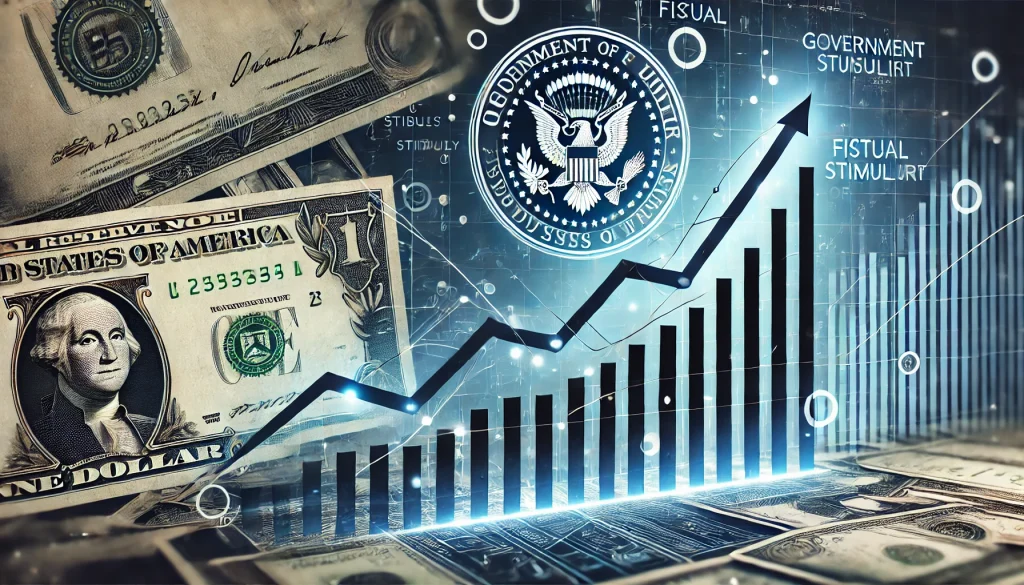
Overview
Fiscal stimulus has long played a vital role in shaping stock market growth, influencing investor sentiment, corporate performance, and overall economic confidence. In October 2024, with global economic conditions constantly shifting, the role of fiscal policy has never been more critical. As nations strive to stabilize their economies amid inflationary pressures, geopolitical tensions, and technological disruptions, understanding how government intervention impacts stock markets is crucial for both institutional and retail investors.
This month, key developments in fiscal policies, such as China’s announcement to significantly increase debt to revive growth, underscore the evolving dynamics in play. Fiscal stimulus, particularly expansionary policies, injects liquidity into the economy, enabling businesses to expand, creating jobs, and, most importantly, boosting investor confidence in stock markets. But as these policies shape economic landscapes, they also introduce risks, making it essential to monitor the shifting effects closely.
Understanding Fiscal Stimulus and Its Role in the Stock Market
Fiscal stimulus refers to government measures, typically involving increased public spending or tax cuts, aimed at stimulating economic activity. It is a cornerstone of fiscal policy, often used during periods of economic downturns or recessions. For stock markets, fiscal stimulus can have both direct and indirect effects, boosting corporate earnings, improving liquidity, and influencing investor expectations.
Expansionary vs. Contractionary Fiscal Policies
There are two primary types of fiscal policies: expansionary and contractionary. Expansionary fiscal policy, which includes measures like increased government spending and tax reductions, is designed to stimulate economic growth. When governments engage in expansionary policies, they often do so to combat economic slowdowns, as seen during the COVID-19 pandemic when countries around the world, including the U.S. and China, injected significant amounts of fiscal stimulus into their economies. Expansionary policies tend to increase demand for goods and services, leading to higher corporate revenues, which, in turn, drives up stock prices.
On the other hand, contractionary fiscal policy involves reducing government spending or increasing taxes to cool down an overheating economy. While this may seem counterintuitive, contractionary measures are sometimes necessary to control inflation and stabilize economies. However, such measures often lead to market corrections or even bear markets as corporate earnings growth slows down, and investor sentiment dampens.
The Effects of Fiscal Stimulus on Stock Markets
The direct connection between fiscal stimulus and stock market growth lies in the increased liquidity that enters the financial system. When governments engage in stimulus measures, capital is more available for businesses and consumers. Here’s how this plays out in the stock market:
- Boost in Corporate Earnings: Companies directly benefit from increased consumer demand, government contracts, and tax breaks. With more cash on hand, corporations can invest in growth initiatives, improve their balance sheets, or return value to shareholders through dividends or share buybacks—all of which can drive up stock prices.
- Investor Confidence: Markets are highly reactive to investor sentiment, and fiscal stimulus often fosters optimism. Investors tend to favor riskier assets, like stocks, when they expect higher economic growth. The influx of government spending signals that authorities are actively trying to stave off recessions, instilling confidence in the market.
- Sectoral Shifts: Some industries benefit more than others from fiscal stimulus. For instance, sectors like infrastructure, healthcare, and technology tend to see more significant gains during times of government stimulus because these areas often receive direct investment. For example, infrastructure projects funded by government stimulus provide construction firms and related industries with more business, thus driving up their stock prices.
- Long-Term Impact on Interest Rates: While fiscal stimulus can fuel short-term stock market growth, it may also contribute to higher long-term interest rates. This is particularly relevant when the Federal Reserve or other central banks must adjust monetary policy to counter inflationary pressures caused by excessive fiscal expansion. Higher interest rates can weigh on stock valuations by increasing borrowing costs for companies and reducing the present value of future cash flows.
What to Watch in October 2024

As we progress through October 2024, several factors are worth keeping an eye on to understand how fiscal stimulus will shape stock market growth:
- China’s Debt Expansion Plan: In a bold move, China recently announced plans to significantly increase debt to revive economic growth. This decision comes after a period of subdued growth, and analysts expect this fiscal push to impact global stock markets, especially in sectors with high exposure to Chinese markets, like technology and manufacturing.
- U.S. Federal Reserve Policy: The Federal Reserve’s stance on interest rates will also be a key factor in October. If inflation persists, the Fed may be forced to adopt a contractionary monetary policy, which could counteract some of the positive effects of fiscal stimulus. Investors should watch for Fed statements and policy shifts that might signal tighter financial conditions ahead.
- Fiscal Stimulus in Europe: Several European nations have announced plans for fiscal stimulus to combat energy shortages and economic stagnation. The effects of these policies will likely be felt across European stock markets, particularly in energy, utilities, and industrial sectors.
Changes in Fiscal Policy and Market Reactions

Fiscal stimulus isn’t without risks. While it can boost economic activity in the short term, over-reliance on government spending can lead to long-term problems such as inflation and increased national debt. For instance, during the COVID-19 pandemic, the U.S. implemented one of the largest fiscal stimulus packages in history, which undoubtedly helped stabilize markets at the time. However, the current inflationary environment partially stems from the excessive liquidity injected during those periods of economic support.
Additionally, fiscal stimulus policies can be politically contentious. Governments must balance the need for economic support with concerns about fiscal responsibility. Investors need to be mindful of potential changes in fiscal policy that could occur after elections or during periods of economic recovery.
Conclusion
As we navigate October 2024, the role of fiscal stimulus in stock market growth remains a critical issue for investors. Expansionary fiscal policies can drive market growth by boosting corporate earnings, stimulating demand, and improving investor confidence. However, there are risks associated with excessive fiscal stimulus, particularly inflationary pressures and potential interest rate hikes.
The coming months will provide clarity on whether current fiscal stimulus measures will lead to sustained stock market growth or if market corrections are on the horizon. Investors should remain vigilant, watching both fiscal policy announcements and central bank decisions that could influence market conditions.
By understanding the interplay between fiscal stimulus and the stock market, investors can make informed decisions and position their portfolios to take advantage of the opportunities that arise. As always, diversification and careful risk management will be essential in navigating these uncertain times.
Key Takeaways
- Fiscal stimulus can significantly impact stock market growth by boosting corporate earnings, increasing liquidity, and improving investor sentiment.
- Expansionary policies are designed to stimulate economic growth, whereas contractionary measures aim to stabilize economies and control inflation.
- Investor focus in October 2024 should remain on fiscal policy shifts, especially in major economies like the U.S. and China, and their effects on global stock markets.
